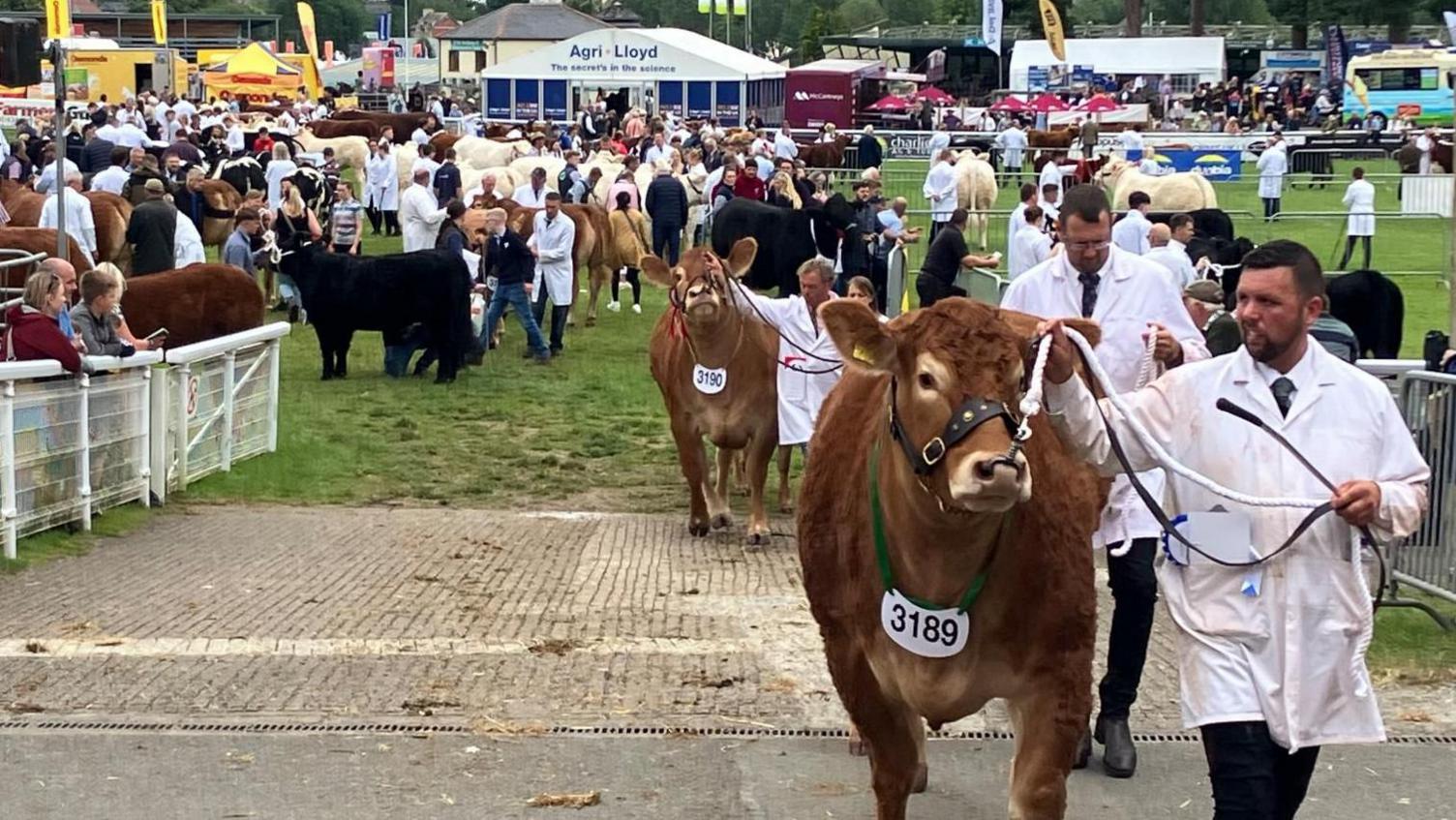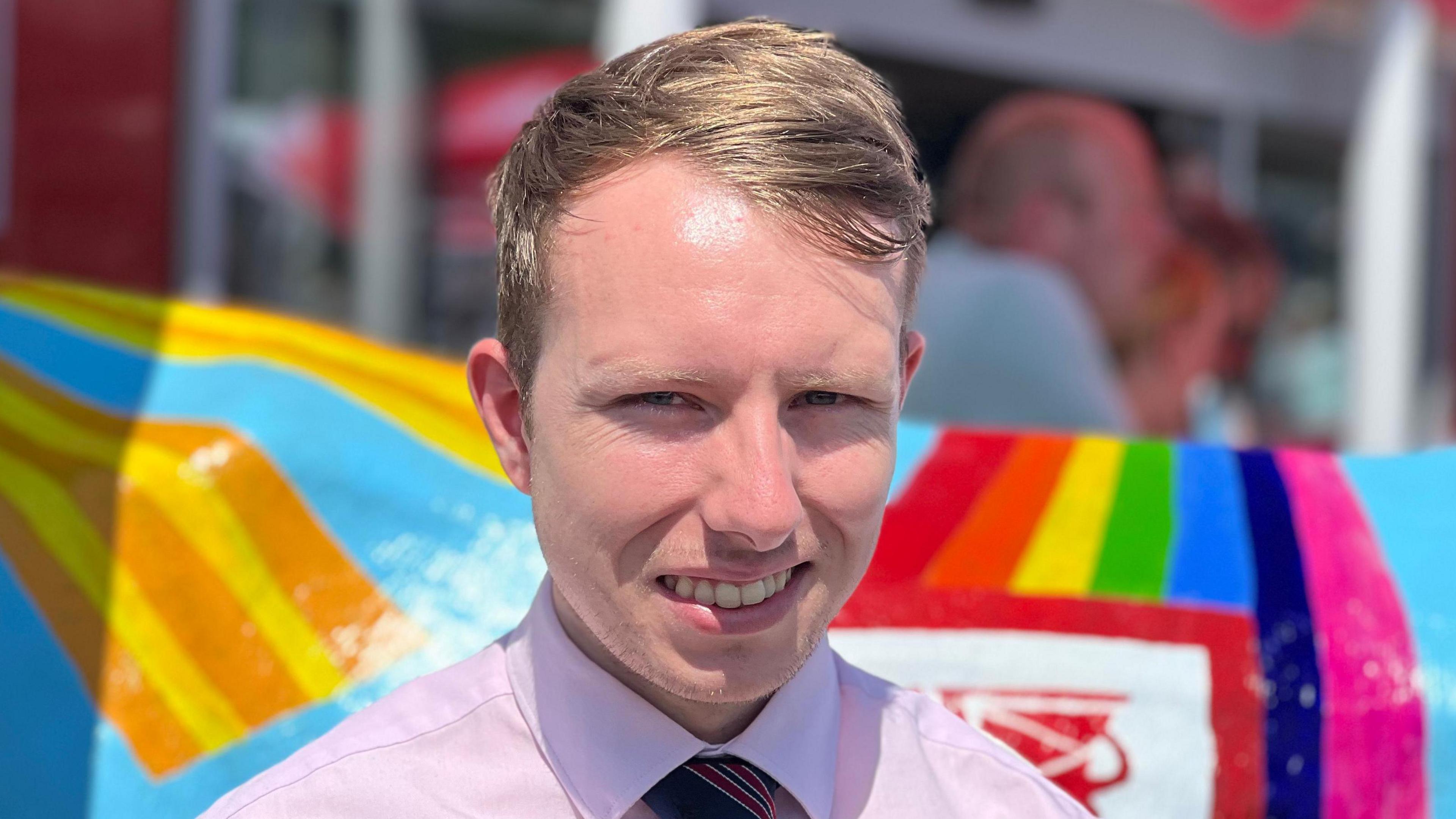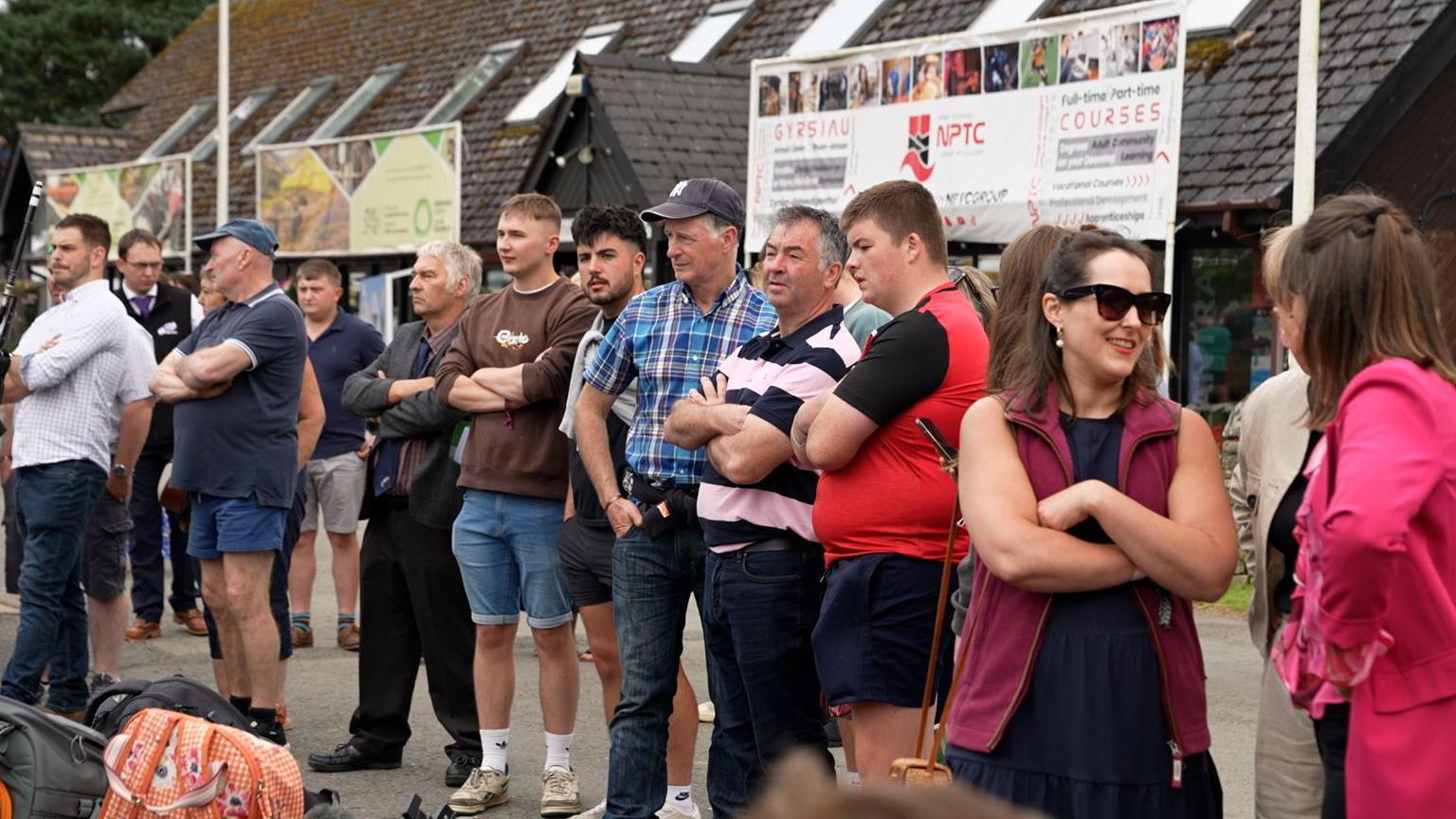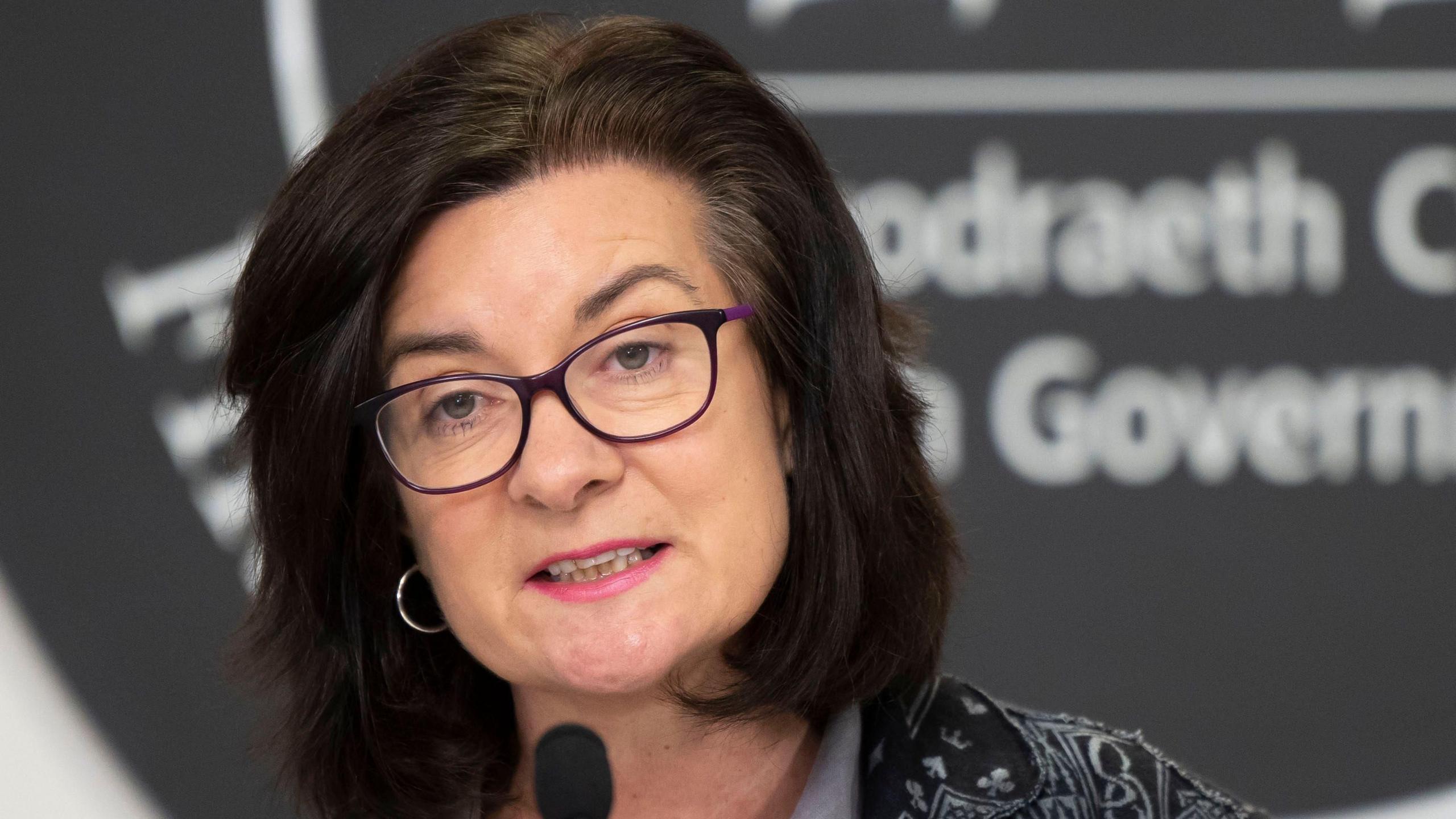We'll work with anyone for rural life, say farmers

With the Royal Welsh Show under way, farmers are continuing to push for changes to planned rural reforms
- Published
Welsh farmers are willing to work with “any politician” to reach a solution on the challenges facing the industry, a key union has said.
Gareth Parry, from Farmers’ Union of Wales, said there had been “a lot of political uncertainty” recently, but the “key asks” the sector had of both the Welsh and UK governments had not changed.
Recent months have seen large protests from farmers in Wales, who have expressed anger at planned Welsh government reforms to the sector.
The comments come days after Vaughan Gething announced he would be resigning as Welsh first minister, after just four months in the job, and weeks after Labour won a landslide in the UK general election.
Why are farmers in Wales ready to protest?
- Published28 February 2024
More time for tree quota after farm scheme tweaked
- Published14 December 2023
Thousands gather for 120th Royal Welsh Show
- Published22 July 2024
A key issue has been the Sustainable Farming Scheme (SFS), the Welsh government’s flagship plan for funding the industry after Brexit, which places emphasis on the environment.
But following the protests, in May the Welsh government said the scheme would be delayed by another year until 2026, saying a new timeframe would give them the opportunity to “work through a number of important aspects”.
Speaking at the Royal Welsh Show in Llanelwedd, Powys - one of Europe's biggest annual agricultural events - Mr Parry said farmers in Wales wanted to ensure an agricultural system that guaranteed "sustainable food production”, and served “all farmers, all farm types, all farm sizes in Wales".
In order for that to happen, he said, policies must take into account their economic, social and environmental impact.
On the SFS, he said there was a concern it "focused too much on the environmental proposals".
"Farm businesses have to be economically sustainable for them to be able to invest in environmental measures and also to contribute to their local communities," he said.
Mr Parry also said there had been "political uncertainty" in both UK and Welsh politics recently, but the key demands of farmers remained unchanged.
Farming is a devolved issue in Wales, but decisions around funding are reached by the UK parliament in Westminster.
"We are willing to work with any politician, any political parties for the best policy outcomes for the Welsh agricultural and rural communities," he said.

Gareth Parry, from the Farmers’ Union of Wales, says the industry's demands of the UK and Welsh governments have not changed
An "open meeting" held at the Royal Welsh Show attracted about 200 people on Monday evening.
Members of the farming community said they would keep pressure on the Welsh government not to implement the controversial plans that have, for now, been postponed.
NFU Cymru President Aled Jones said he thought the protests had made a difference.
"I think they have listened this time... there is a different feel and sense at the moment and the sense of urgency as well," he said.
"We must keep them to account, the commitments that we’ve had."

The farming community said it is making sure the government is held to account
Last week, Mr Gething was forced to resign as first minister after three ministers and his chief legal adviser quit at the same time.
He had faced months of controversy over campaign donations, and had lost a vote of confidence during the general election campaign.
She will run on a "joint unity ticket" with Climate Change and Rural Affairs Secretary Huw Irranca-Davies.
Asked about the SFS on Monday, Mr Irranca-Davies said the programme was in the "preparatory phase" with a view to it being launched in 2026.
He said "consultation" with relevant stakeholders was key to getting the scheme finalised.
"We know the areas that are knotty issues, we’re working through them and we’re doing them at pace," he told BBC Radio Wales Breakfast.
"What [farmers] don’t want is people playing around saying, ‘Let’s tear things up, let’s have a look at alternative ways forward’," he said, adding there were many agreements on the "headline issues".
He added that, as well as addressing food sustainability, the Welsh government also wanted to "fix critical issues with nature and climate resilience as well".

Eluned Morgan has confirmed she will run as a candidate for new Welsh first minister
Pembrokeshire dairy farmer Simon Davies described it as an "up and down" year for farmers, who had faced weather issues as well as political upheaval.
He said the original demand in the SFS of having tree-cover on 10% of a farm’s land and managing 10% as wildlife habitat "doesn’t make our business viable".
The government has said there is crossover with the 10% targets and farmers can still use land being managed for wildlife habitat - for instance a field with a variety of different species of grasses counts as habitat but can still be used to graze livestock.
Mr Davies hoped progress could be made on the issue with the new Welsh government.
"There’s got to be a compromise, surely," he said.
He added farmers were not against planting more trees "in the right places" but could not accept a "blanket approach".
"That doesn’t work for my business and my family’s business going forward," he said.